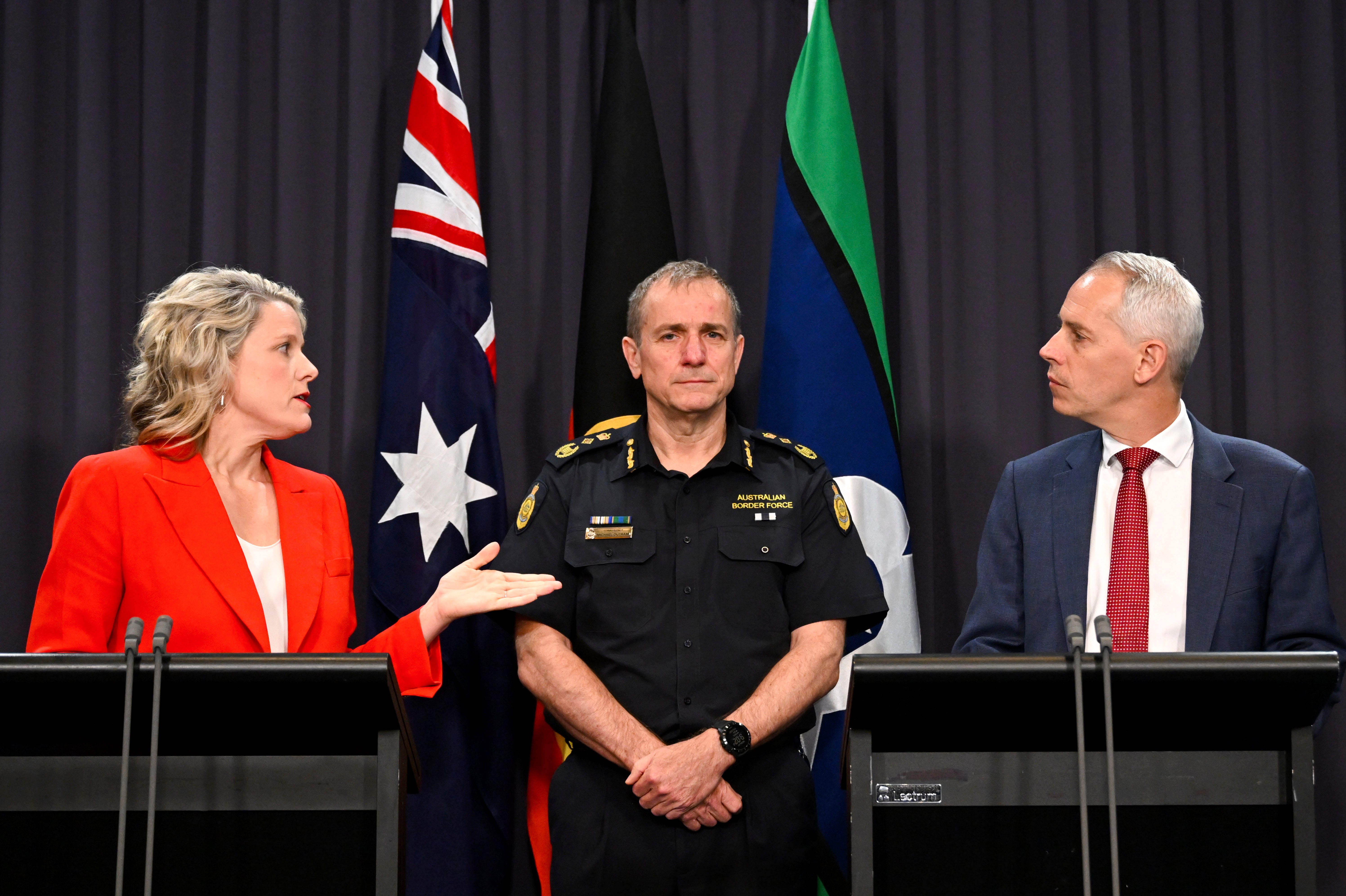Australia commits another $168 million to monitoring migrants freed from indefinite detention
The Australian government has committed an additional $168 million in funding for police and other law enforcement officials to monitor 141 people freed after a court ruled indefinite detention of unwanted migrants was unconstitutional

The Australian government on Monday committed an additional 255 million Australian dollars ($168 million) in funding for police and other law enforcement officials to monitor 141 migrants freed when a court ruled their indefinite detention was unconstitutional.
The new funding over two years reflects an increase in the workload of law enforcement officials due to government concerns of a heightened community risk posed by those released following a landmark High Court decision on Nov. 8. That ruling said the government could no longer detain indefinitely foreigners who had been refused Australian visas, but could not be deported to their homelands and no third country would accept them.
The migrants released due to the High Court ruling were mostly people with criminal records. The group also include people who failed visa character tests on other grounds and some who were challenging visas refusals through the courts. They include refugees and stateless people.
Home Affairs Minister Clare O’Neil said the government’s priority was protecting the safety of the Australian community within the limits of the law.
“This funding will ensure that our agencies are able to dedicate the time and resources that will be required to manage this cohort into the future,” O’Neil said in a statement.
The Parliament passed a raft of emergency laws on Nov. 16 that imposed restrictions on the newly released migrants including curfews, police reporting conditions and a requirement to wear an electronic ankle bracelet to track their movements at all times.
Lawyers for a Chinese refugee last week lodged a High Court challenge to the new measures, arguing their client was being punished through his curfew and being forced to wear an electronic bracelet.
Hannah Dickinson, the principal lawyer at the Melbourne-based Asylum Seeker Resource Center, told Australian Broadcasting Corp. the additional spending on law enforcement would result in increased policing that was “entirely unnecessary, unjustified and ... damaging to the community.”
O’Neil also announced she would soon introduce draft legislation in response to a recent High Court decision that found a government minister could not strip citizenship from a man convicted of terrorism.
Under the proposed new laws, a judge rather than a minister would decide whether the Australian citizenship of a dual national would be stripped during a sentencing hearing.
The crimes for which citizenship could be removed would be extended beyond terrorism to include espionage and covert foreign interference in Australian politics on behalf of a foreign government.